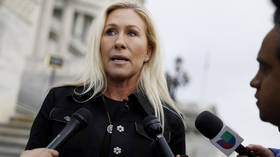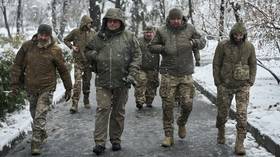Obama proposes way out of ‘unprecedented crisis’
U.S. President Obama has unveiled a recovery and re-investment pledge in his first weekly address since taking the office on Tuesday.
It was the latest appeal from the new president for a massive spending bill designed to inject almost a trillion dollars into a flailing US economy and to fulfill campaign pledges.
“In the midst of an unprecedented crisis that calls for unprecedented action” he said there is a need to “act boldly and swiftly”. Although the plan is still being refined, the main points are as follows.
Obama Administration pledges to “save or create three to four million jobs over the next few years”.
“This is not just a short-term program to boost employment. It’s one that will invest in our most important priorities like energy and education; health care and a new infrastructure that are necessary to keep us strong and competitive in the 21st century,” President Obama said.
The broad plan puts heavy emphasis on infrastructure that crumbled as state budgets contracted.
It envisages creating 5,000 kilometres of new electrical lines, increasing security at 90 ports and doubling the United States' renewable energy capacity within three years.
Along with the speech, Obama's economic team released a report designed to outline tangible benefits of the plan and shore up support.
Aides said they wanted people to understand exactly what they could expect – more schools, lower electricity bills – if their members of Congress supported the proposed legislation.
The United States lost 2.6 million jobs last year, the most in any single year since WW2. Manufacturing is at a 28-year low and even Obama's economists say unemployment could top 10 per cent before the recession ends. One in ten homeowners is at risk of foreclosure and the dollar continues its slide in value.
Many of the goals in the speech and report were familiar from Obama's two-year campaign, like shifting to electronic medical records and investing in preventive health care. Other parts added specifics.












